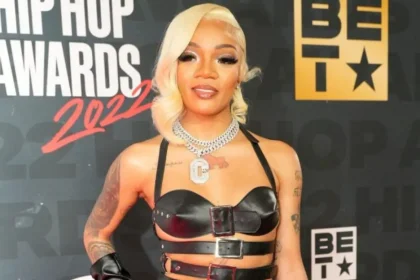Hip hop artists often experience a meteoric rise to fame, with newfound wealth flowing in from record deals, performances and endorsements. However, the rapid influx of money can lead to significant financial mismanagement. Without careful planning, even the most successful artists can find themselves facing financial hardship. This issue is more common than many realize, as the combination of lifestyle pressures, lack of financial education and poor investment decisions can easily derail long-term success.
In this article, we’ll explore five critical financial mistakes that hip-hop artists make, which can jeopardize their futures. From impulsive spending to neglecting taxes, understanding these pitfalls is key to sustaining wealth and achieving financial freedom.
1. Overspending on a lavish lifestyle
When a hip hop artist first breaks into the spotlight, there’s often an overwhelming temptation to showcase their success with material possessions. Expensive cars, designer clothing and luxurious homes become the standard. While it’s natural to celebrate achievements, overspending can quickly spiral out of control.
The flash of wealth
Living beyond their means is one of the most common mistakes made by rising stars in the industry. The desire to maintain an image of wealth often leads to extravagant spending habits that aren’t sustainable in the long run. When the income isn’t managed wisely, it becomes difficult to keep up with these lifestyle choices once the flow of money slows down.
Artists who prioritize financial stability over temporary luxuries set themselves up for long-term success. Instead of splurging on everything they desire, they should create a budget that balances their needs with their wants, ensuring they live within their means.
No one wants to lose everything they worked hard for, especially after putting in years of dedication. Recognizing that financial stability leads to lasting freedom can motivate artists to make better choices.
2. Neglecting to save and invest
The unpredictability of the entertainment industry makes it essential for artists to save for the future. Unfortunately, many hip hop artists neglect the importance of saving and investing early in their careers, assuming that the money will keep flowing in. This mentality can be financially devastating.
Missed opportunities to build wealth
Not investing wisely is a mistake that many artists regret later in life. Instead of building a diverse financial portfolio, many put their money into high-risk ventures or fail to invest altogether. The lack of professional financial advice and strategic planning can lead to missed opportunities for wealth growth.
Saving and investing early helps create financial security, even when an artist’s popularity wanes. Seeking advice from a trusted financial advisor can guide them in making smart investment choices — such as purchasing real estate, stocks or contributing to retirement accounts.
The fear of being broke after achieving success can be a powerful motivator for artists to think ahead and start securing their financial future through savings and investments.
3. Failing to pay taxes properly
Taxes can be a tricky aspect of managing finances, especially for artists who might not have prior experience handling large sums of money. Failing to set aside money for taxes or misunderstanding the complexities of tax obligations can lead to significant financial consequences, including penalties and audits.
The consequences of ignorance
Many hip hop artists face legal battles and large fines due to tax evasion or mismanagement. Some artists believe that as long as they’re making money, they can pay taxes later, only to find out that they owe more than anticipated. Additionally, the lack of awareness about tax deductions and write-offs can cause them to overpay in some areas, while neglecting their actual obligations.
Hiring a professional accountant who understands the music industry is crucial. Proper tax planning ensures that artists meet all legal requirements while also maximizing available deductions. It’s about balancing income, expenses and taxes to prevent financial ruin.
No artist wants to find themselves fighting off the IRS or losing what they’ve earned due to avoidable tax errors. Understanding the importance of tax planning helps artists stay on the right side of the law and protect their hard-earned money.
4. Poor management of royalties and contracts
Royalties are one of the main sources of income for hip hop artists, but failing to properly manage these earnings can lead to significant losses. Artists who don’t fully understand their contracts or who don’t receive proper guidance when signing deals often end up losing substantial portions of their earnings to record labels, management teams or other entities.
The danger of signing without understanding
Many artists sign contracts early in their careers without fully understanding the long-term implications. These contracts often favor record labels, allowing them to claim a significant share of an artist’s royalties, sometimes for decades. Without thorough legal and financial review, artists can lose out on future earnings, leaving them with little control over their music and income streams.
To avoid this, artists should always seek legal advice before signing contracts. It’s essential to fully understand the terms, including royalty percentages, ownership rights and long-term financial implications. Artists who take control of their business dealings are more likely to retain their financial independence.
The realization that a lack of contract understanding can cost an artist millions can inspire them to take control of their financial and legal affairs, ensuring they don’t get trapped in unfair deals.
5. Lack of financial education
Perhaps the biggest mistake of all is the lack of financial education that many hip hop artists face. Growing up, many artists never had access to financial literacy resources, making it difficult to manage wealth once they achieve success. Without proper financial education, they are more vulnerable to scams, poor investments and financial mismanagement.
The importance of learning about money
Financial education goes beyond just saving and spending. It involves understanding credit, debt management, investments, business ventures and wealth preservation. Hip hop artists who don’t take the time to learn about these areas often find themselves at the mercy of others who might not have their best interests at heart.
There are many resources available today that can help artists build their financial knowledge. From online courses to financial advisors who specialize in entertainment, learning about money management empowers artists to make informed decisions and safeguard their future.
The fear of losing everything because of a lack of knowledge should drive artists to seek out financial education and surround themselves with experts who can guide them.
Securing the future of hip hop artists
The financial pitfalls that hip hop artists face are numerous, but they are not insurmountable. By understanding and avoiding these common mistakes, artists can secure their financial futures and enjoy the fruits of their labor for years to come. It’s not just about achieving fame — it’s about making sure that fame leads to long-term financial security.
Taking steps like living within their means, investing wisely, paying taxes, understanding contracts and committing to financial education can prevent artists from falling into financial ruin. The key is recognizing the importance of planning for the future and taking action before it’s too late.
Hip hop artists have the talent and drive to succeed in the industry, but to truly thrive, they need to apply that same drive to their financial lives.
This story was created using AI technology.

















